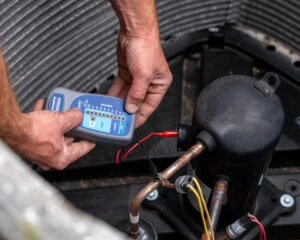
In today’s world, where energy costs are continually rising and environmental concerns are front and center, maximizing the energy efficiency of your HVAC system is not just a luxury—it’s a necessity. An efficient HVAC system not only reduces your carbon footprint but also lowers your energy bills significantly. This guide provides practical tips to help you enhance the performance of your heating, ventilation, and air conditioning (HVAC) systems, ensuring they operate at peak efficiency. Here are some Tips for Your HVAC System’s Performance
Understand Your HVAC System’s Performance
The first step toward maximizing energy efficiency is understanding how your HVAC system works. HVAC systems are comprised of various components, including heating, cooling, and air handling units that work together to maintain indoor comfort throughout the seasons. Familiarize yourself with your system’s design, specifications, and maintenance requirements. This knowledge will help you identify areas where energy efficiency can be improved.
Regular Maintenance is Key
Regular maintenance is crucial for keeping your HVAC system running efficiently. Neglecting this can lead to decreased performance and increased energy consumption. Here are a few maintenance tips to keep your system in top shape:
- Replace or clean air filters regularly: Dirty filters restrict airflow and reduce overall system efficiency. Replace disposable filters or clean reusable ones every one to three months.
- Schedule annual inspections: Have a professional technician inspect your HVAC system annually. This can help catch issues before they lead to significant energy waste.
- Ensure proper airflow: Check that vents
- and registers are not blocked by furniture or rugs, as this can impede airflow and force your system to work harder.
Upgrade to Energy-Efficient Equipment
If your HVAC system is older, it might be time to consider an upgrade. Newer models are generally more energy-efficient due to advancements in technology. Look for products that carry the ENERGY STAR® label, which signifies compliance with energy efficiency criteria established by the U.S. Environmental Protection Agency. These systems use 10-20% less energy than standard models. We offer Trane products
 Install a Programmable Thermostat
Install a Programmable Thermostat
A programmable thermostat can significantly enhance your HVAC system’s efficiency. It allows you to customize heating and cooling schedules according to your daily routine, avoiding unnecessary energy use when you’re not at home. By setting your thermostat to adjust the temperature for times when you are away or asleep, you can save on energy bills without sacrificing comfort.
Seal Ductwork
Leaky ducts can lead to significant energy losses, with some homes losing up to 30% of airflow due to leaks and poorly connected ducts. Sealing and insulating ductwork can prevent this loss, ensuring that air is efficiently distributed throughout your home. Consider hiring a professional to test your duct system and make any necessary repairs.
Utilize Zoning Systems
Zoning systems allow you to heat or cool different areas of your home independently, which can lead to significant energy savings. This is especially beneficial in larger homes where certain areas may not require constant heating or cooling. By installing zoning controls, you can maintain different temperatures in different rooms based on usage, reducing the overall energy consumption of your HVAC system.
Consider the Environment
Integrating your HVAC system with natural environmental features can also boost efficiency. For example, planting trees around your home can provide shade and reduce cooling costs in the summer. Similarly, using energy-efficient windows can help keep warm air inside during the winter and cool air inside during the summer.
Invest in Insulation
Proper insulation helps maintain your desired indoor temperature, reducing the burden on your HVAC system. Check the insulation in your walls, attic, and floors. Upgrading insulation where needed can prevent heat loss during winter and keep your home cool during summer.
Conclusion
By following these tips, you can maximize the efficiency of your HVAC system, reduce energy consumption, and lower your utility bills while contributing to environmental conservation. Remember, an efficient HVAC system not only saves money but also enhances the comfort of your indoor environment.
If you’re unsure where to start or need professional assistance, don’t hesitate to contact us. Our expert team is ready to help you achieve optimal efficiency with your HVAC system. Reach out today to schedule a consultation and take the first step towards a more energy-efficient home.

 Install a Programmable Thermostat
Install a Programmable Thermostat